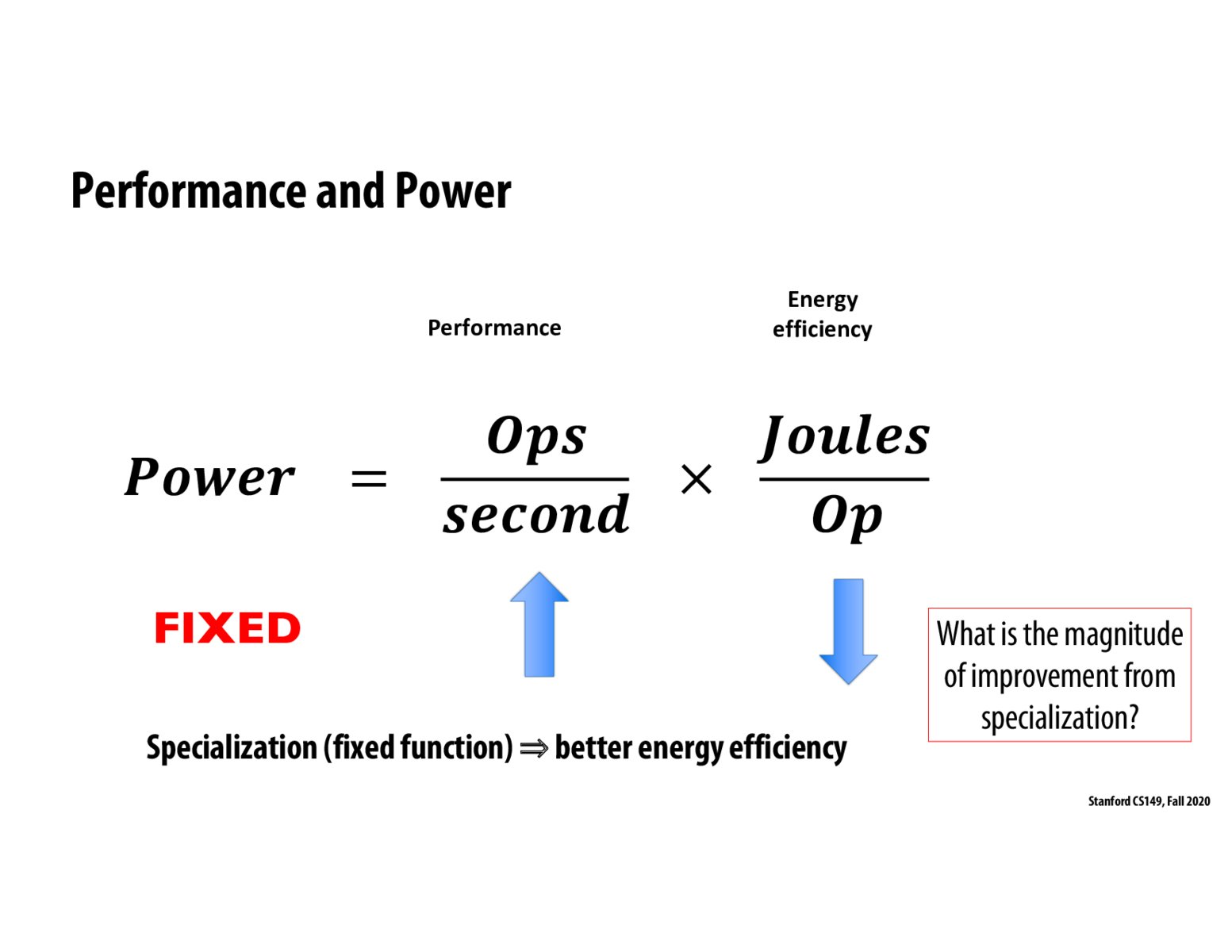


If the supply of power was unlimited, at what point would heat be a major limiting constraint on performance? Does this depend on the hardware? I'm assuming the constraint for heat on phones would be a lot tighter than the constraints for heat on computers, since very hot phones would be uncomfortable to hold, etc.
Also, does this mean that improving the performance of a program (increasing the number of ops/second while energy efficiency is constant) could potentially lead to worse performance if it causes the cpu to throttle performance (due to power reaching a point where heat becomes an issue)?

@lfu In my understanding, implicit in this equation is that the 'power' limiting factor is not generally how much power we can supply to the system, but how much power, i.e. heat, we can safely dissipate. Therefore heat/thermal stability is a constraint already built into the power term.

Throughout this course, we've focused on optimization through software, but considering the hardware limitations from things like power are crucial to further optimizing performance. There's a cap on the amount of power a computer can output, so by limiting the amount of power consumed, we can squeeze out better performance.

How much performance can we really squeeze out though? Or rather is squeezing out this extra performance worthwhile?
Please log in to leave a comment.
Given the power constraints, in order to increase performance, we need to have better energy efficiency. The key to energy efficiency is the specialization that we are going to cover throughout this lecture.